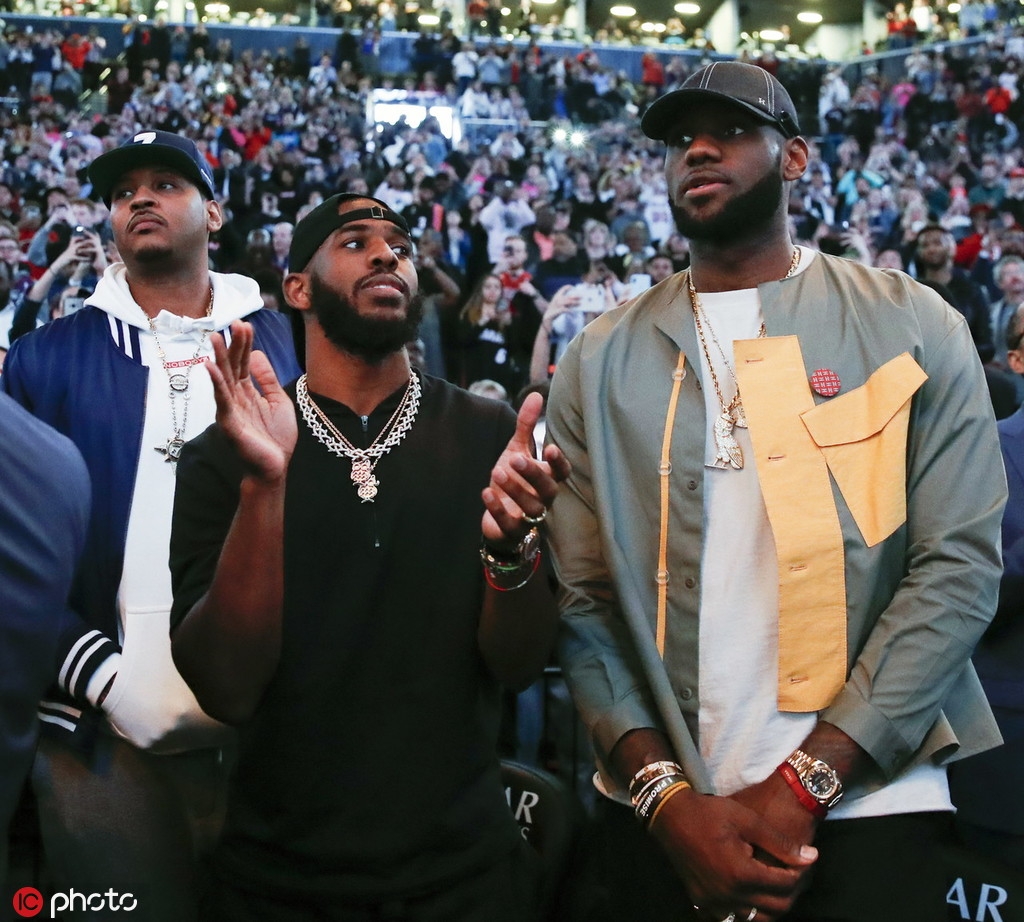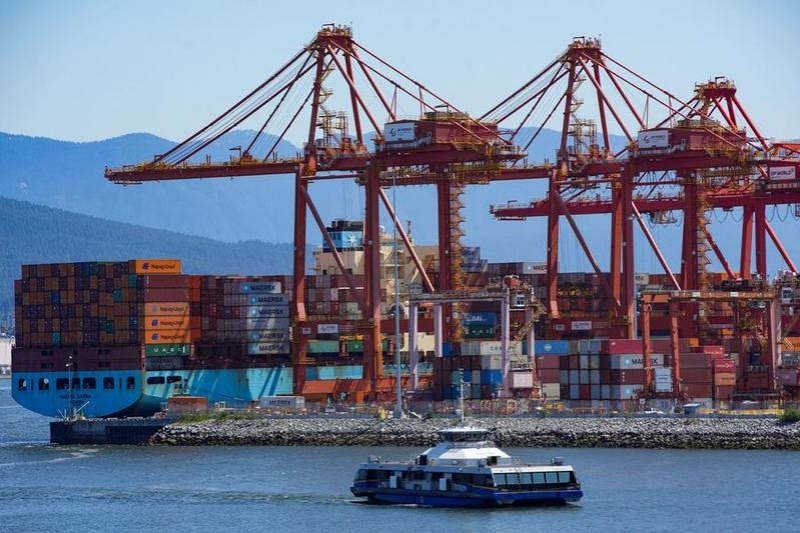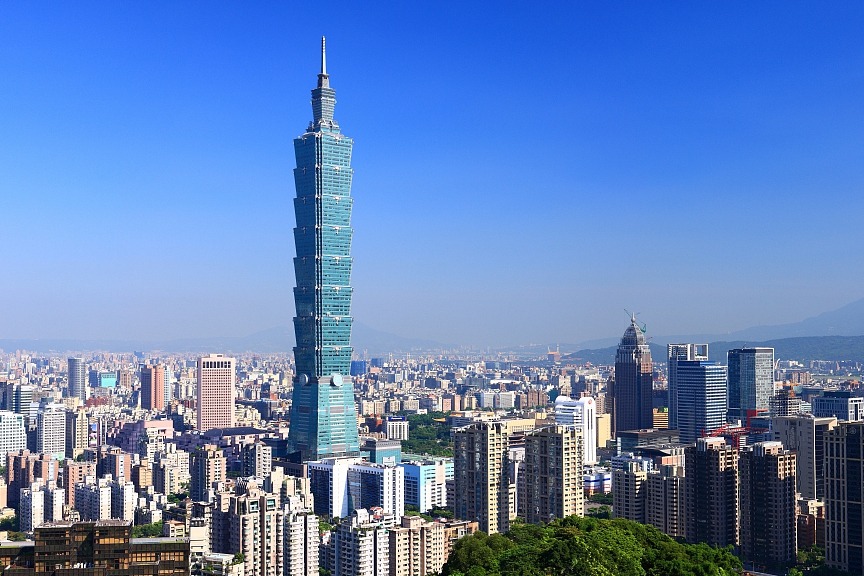LeBron 'scandal' shows depth of anti-China psychosis


A measured answer to a loaded question. We don't get enough of them these days.
LeBron James of the National Basketball Association's Los Angeles Lakers demonstrated tact and thoughtfulness when he broke his silence on Houston Rockets manager Daryl Morey's tweet in support of the Hong Kong protests, lodging no opinion on the protests themselves and calling the move by Morey ill-advised. "I believe he wasn't education on the situation, and he spoke," James said.
Here, the 4-time MVP was probably right; pro-Hong Kong posts on Western social media are something of a bandwagon, and plenty of celebrities have vocalized their approval of the protests without fully comprehending the situation. James was, in essence, saying "no investigation, no right to speak." Considering the consequences of Morey's hip-fired tweet —an enormous public backlash in China — that seems like pretty sage advice.
Unfortunately this was not how some in the US felt about it. Opinion elites were quick to condemn James for, irony of ironies, insufficient condemnation. They wanted James to come out strong against China, to mirror their perspective on a country they've designated as an enemy.
But James wasn't playing their game, which naturally meant he had to be attacked. Social media played fast and loose with the facts, and claims about James grew more and more ridiculous — including that his choice of words indicated coaching by those working for or familiar with the Communist Party of China. I haven't checked in a little while but it wouldn't surprise me if they've moved to calling him a treasonous fifth columnist.
A revolting hypocrisy is at work here. The same people who told James and former San Francisco 49ers quarterback Colin Kaepernick to "shut up and play" when they took a stand against the killing of Black men by US police are now demanding athletes speak out — but only if their opinions are the correct ones, of course.
There's no doubt if James or the Houston Rockets' James Harden were more favorable toward the protests the Western press would be applauding their "bravery", as if agreeing with every politician and media outlet in the US requires courage. But because both players have advised caution and a better understanding of the situation, they're being raked over the coals.
Let's not mince words. No matter what anyone says, this isn't about freedom of speech. That's just a fig leaf, a cover for policing discourse and narrowing the window of acceptable opinion so the only stances that fit are the ones in line with the US government. "Free speech" has never really been about the untrammeled right to say or do whatever one wants — the US created broad definitions of dissent to prosecute its critics throughout its history. The mechanisms for ideological enforcement have grown more sophisticated and indirect since the Alien and Sedition Acts of 1798, but that doesn't mean they're not at work here.
Insinuating James only answered the way he did because he was thinking of money implies James wasn't voicing his own opinion, something that's impossible to know. But James isn't being given the benefit of the doubt, because his position doesn't gel with the established US orthodoxy on Hong Kong. No one in the major US media, not even James' few defenders, has entertained the notion he was speaking honestly. Besides the nasty racial connotations — think for a moment what a largely white media class devaluing a Black man's subjectivity implies — it sets a precedent. If one of the most talented and popular athletes in the world has his statements dismissed when they don't conform to Western consensus, what does that mean for the rest of us?
There's a widespread assumption any public figure who doesn't toe the anti-China line has been bought or coached, and this toxic belief has metastasized from the most hawkish wings of the "China expert" community to infect the general public. It's a dangerous tendency. It denies agency to those who might have positive or even neutral impressions of the country, and delegitimizes any dissenting voices without any engagement with those impressions on their merits. This is a deliberate strategy to flatten an important national conversation, and it should be called out for what it is.
We got a preview of this trend late last year, when economist Jeffrey Sachs published a piece critical of the US position on Chinese tech firm Huawei. Sachs was, up to that point, a darling of the media class; his market-based answers to the problem of global poverty were just the kind of tepid non-solutions neoliberal NGOs and think tanks love. Despite this reputation, reaction from opinion-makers in the US to his Huawei piece was something out of The Crucible. Journalists, academics and others took turns leveling wilder and wilder accusations at Sachs — including, of course, bribery by the Chinese government — effectively excommunicating him from the ranks of people to be taken seriously. Sachs left social media shortly thereafter, never to return. Mission accomplished.
Cynicism runs rampant in the US government and its media hangers-on. To them, it would be impossible to think or say anything positive about a place they've determined in their vast wisdom is a nightmarish dystopia. It's this same attitude that treats the Chinese government's policies to maximize employment and eradicate poverty as tools to ensure regime loyalty — as if steady employment and a higher quality of life aren't unambiguous good things a government pursues for their own sake.
James shouldn't buckle to pressure from a jaded media class who've already shown their willingness to stab those they perceive as heretics in the back. They cheer for him when he wins championships, but want him to keep his mouth shut off the court. But that's not his style. Whether denouncing police brutality or encouraging a more nuanced view of a heated political situation, James has never been afraid to challenge conventional wisdom.
He shouldn't start now.
The author is a writer with China Daily.
The opinions expressed here are those of the writer and do not represent the views of China Daily and China Daily website.


































